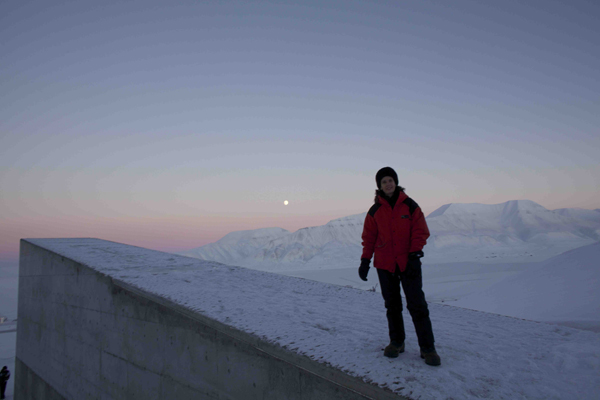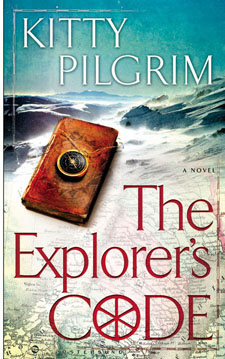We love to think of the Arctic as a beautiful pristine wilderness, populated by polar bears floating along on giant ice floes. A fantasy world that most people will never see, except in wildlife documentaries.
But many countries view the Arctic as a source of untapped wealth. Hidden deep below the melting polar cap is vast unseen treasure: oil, gas, minerals. And with increasing ice melt - trade routes and fishing rights are also coveted.
This week the Arctic Council -- eight countries with clear interests in precious northern resources -- met in Kiruna, Sweden: Canada, Denmark, Finland, Iceland, Norway, Russia, Sweden and the United States. No surprises there. All have relative proximity and/or geographic claims to the region.
But others countries have insistently pressured the Arctic Council to be admitted to the discussions as "observer states" including: China, India, Italy Japan, Singapore and South Korea.
While the appropriateness of this expansion of membership was hotly debated, the "observer countries" have prevailed. Including them was rationalized by saying that wider participation in the Arctic Council increases global awareness of the issues.

That debate glosses over the competition for resources. Let's take fishing. As the ice recedes, international waters become open for exploitation. One of the big conundrums for the Arctic Council is who can claim fishing rights. Scientists would like to conduct an assessment of fish habitat and stocks before any decisions are made.
Another more important issue is territorial claim of oil, gas and minerals. In 2007 Russians sent a submarine to the seabed floor to plant a titanium capsule with the Russian flag, claiming the Arctic as Russian territory. Soil samples were taken to prove that the seabed below the polar ice cap is an extension of the Lomonosov Ridge, part of the Russian continental shelf.
China is stepping up its involvement in the Arctic. Beijing already sent a ship through the northern passage, an icebreaker called the "Snow Dragon" and has a Polar Research Institute in Shanghai. Research expeditions are planned in coming years.
This competition for Arctic natural resources is nothing new. I recently wrote a thriller novel -- The Explorer's Code -- that fictionalized a competition for coal mining rights in the small island of Svalbard, Norway in the early 1900's. At that time, the Arctic Coal Mining Company, owned by John Longyear -- an American -- mined arctic coal for export. Other countries tried to wrest mineral rights by claiming that the territory of Sptizbergen was "terra nullis" -- No Man's Land, and squatter's rights applied.
I have traveled to the high Arctic on several occasions, mostly in winter, and have long taken an interest in the region's future. As a member of historic Explorers Club of New York, I often contemplate Robert Peary's expedition sledge hanging on the wall of the clubhouse.  He claimed to have led the first expedition to reach geographic North Pole in 1909 -- an honor famously disputed by Dr. Frederick Cook and his expedition. While passions were at a fever pitch, fueled by popular interest, the stakes are higher now.
He claimed to have led the first expedition to reach geographic North Pole in 1909 -- an honor famously disputed by Dr. Frederick Cook and his expedition. While passions were at a fever pitch, fueled by popular interest, the stakes are higher now.
The Arctic Council's final declaration this week recognized increasing commercial interests in the region by acknowledging "the central role of business in the development of the Arctic." Attending the conference, Secretary of State John Kerry stated that everyone should have concern for "the promises and the challenges of the northern most reaches of the earth." I agree.
We should not romanticize the region, talking about seals and bears and melting ice. Hard-headed attention is called for. We should all be concerned about this critical moment in which the future of the Arctic is being discussed.